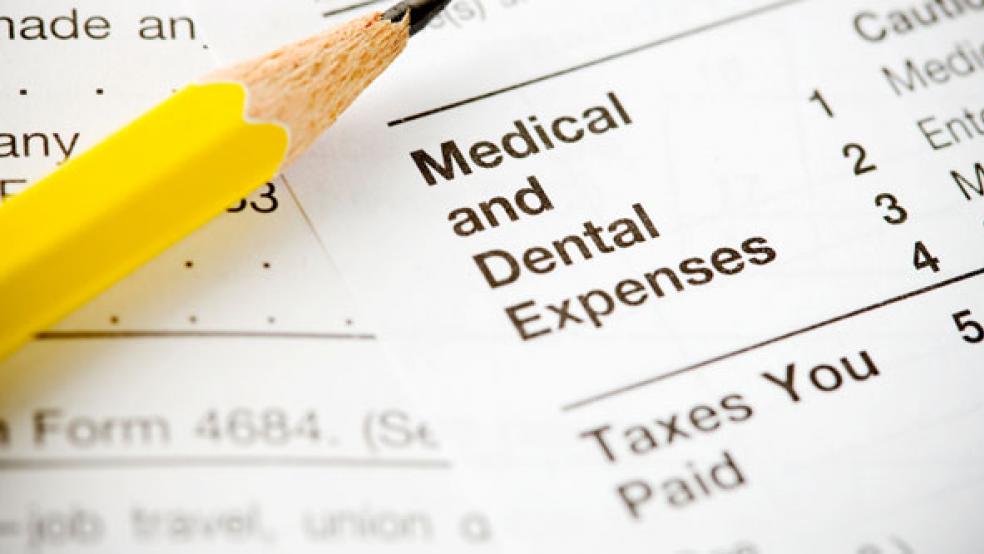Whether it’s due to human error or fraud, medical billing errors can cost you a fortune.
Billing advocates and other health professionals estimate that anywhere from 30 to 80 percent of medical bills contain errors. The Department of Health and Human Services, which conducts regular reviews and audits of hospitals, found that Medicare overpaid billers by $34.6 billion dollars in 2013 alone.
While Medicare and the federal government often pick up the tab, millions of dollars end up falling to consumers.
Here’s what you can do to prevent paying more than you owe.
Before the Bill Even Arrives
Make sure you understand your insurance coverage. Your health care provider should be in your insurance network and you should know which services will and won’t be covered. If you’re unsure, ask your insurance company for a copy of your summary of benefits or print it from their website.
Related: Historic Medicare Data Dump Blows the Lid Off Doc Pay
If you’ve scheduled surgery or a procedure, ask about the costs ahead of time and record the hospital’s quoted prices. When looking over your medical bill later, the original estimate will be a good reference when scanning for extra costs.
Although hospitals aren’t universally mandated to publish their charges up front, many can and will give you a cost estimate for a planned procedure if you ask. Additionally, recently released Medicare data has made possible a host of cost resources, such as a Best Hospitals tool, which you help you compare average charges in your area for common procedures.
While you’re in the hospital, have a relative, friend, or caregiver keep a record of all tests and procedures performed and, if possible, a list of the drugs you’re given. More information is better, so the optimal record will have times, dates, doses and reasons. This may seem tedious and unimportant but depending on the length of your stay, it could save you thousands of dollars later.
When You Open the Statement
You should receive an explanation of benefits statement from your insurance provider in the mail at roughly the same time you receive your hospital bill. Keep both handy for comparison.
Related: You Identity May Be Stolen at Your Next Doc Visit
Here are a few tips to find potential errors:
- Make sure the doctor and/or hospital sends you an itemized billing statement, since scrutinizing charges individually is vital and time is of the essence. Unpaid medical bills will often quickly be sent to collections agencies.
- Once you’ve received an itemized bill, open it and check your identifying information and dates of service to make sure they are correct. Small mistakes in these fields are some of the most common billing errors, and can result in your insurance company rejecting your claim.
- Next, it’s time to go through each charge, so get out your red pen. The easiest thing to check for, and another common error, is duplicate billing. This is when those detailed records you kept during your hospital stay could be extremely useful. Some charges, like medications, are likely to be recurrent, but others shouldn’t be.
- Perhaps the trickiest errors to spot are unbundling errors, which occur when items that generally come as a package are billed separately. Bundled charges usually include the terms “kit,” “room fee” or “tray,” but their individual components for a particular hospital are harder to determine. If there are a lot of charges corresponding to a single simple procedure at a certain date and time, it should raise a red flag.
When You Find Errors
If your hospital stay was short or your bill was for an outpatient procedure, you are at a lower risk for overcharges. If the errors you find are minimal, calling your health care provider and insurance company to alert them may be enough to save you money.
Related: There’s No App for That: Why We Need a Health Care Shopping Guide
However, if your bill for a short stay or uncomplicated procedure far exceeds the estimate the hospital gave you or you found online, you may want to hire a medical billing advocate. Advocates are independent parties who scrutinize medical bills for costly errors. They may be hired by the hour or by the percentage of savings on your medical charges, which is usually around 15 to 35 percent of the amount they get knocked off your bill. Medical billing advocates also sometimes negotiate with your care provider or insurance company on your behalf.
Lacie Glover writes for NerdWallet Health, a website that empowers consumers to find high quality, affordable health care and insurance.
Top Reads from The Fiscal Times:



